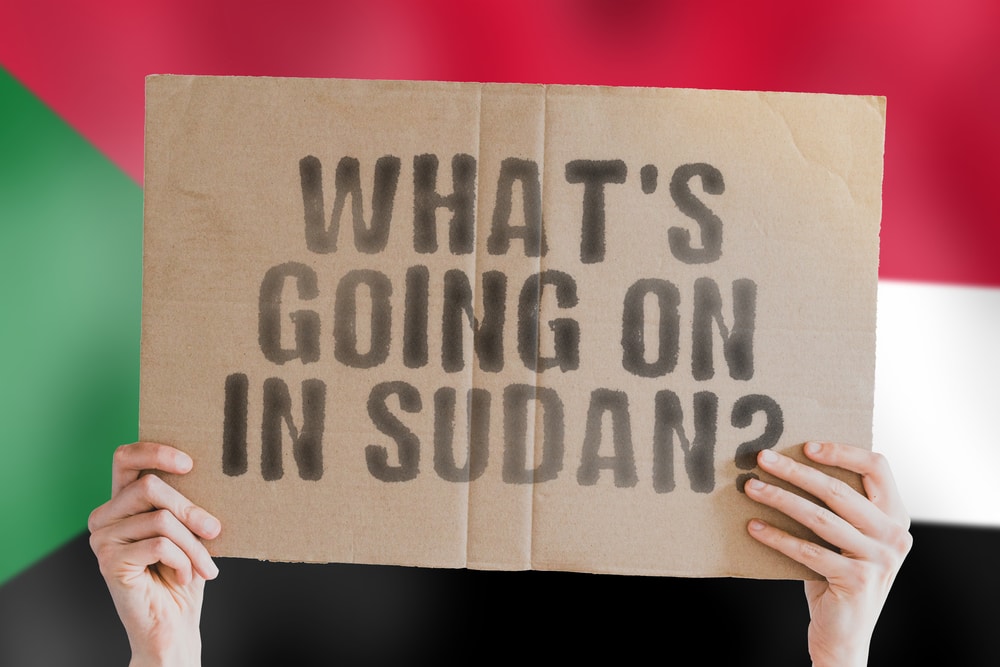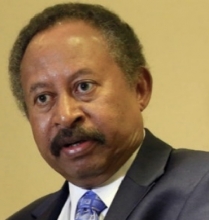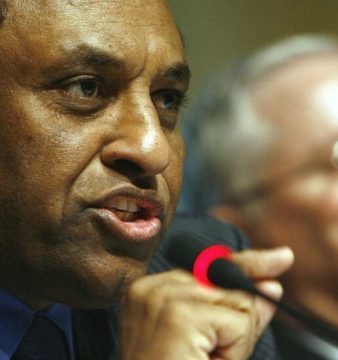Sudan Coup: What You Need to Know

On the early morning of 25 October 2021, news broke out that several civilian members of the transitional Sovereign Council were arrested along with Prime Minister Abdalla Hamdok, in an apparent military coup led by the head of state, General Abdel Fattah Abdelrahman Al Burhan.
In response, thousands of people took to the streets across Sudan in protest of the military coup. The internet has been cut off, while roads and bridges in Khartoum have been blocked. The airport has also been closed, and the headquarters of state television and radio were raided by security forces.
⚠️ Confirmed: Internet disrupted in #Sudan amid reports of military coup and detention of Prime Minister; real-time network data show national connectivity at 34% of ordinary levels; incident ongoing 📉
— NetBlocks (@netblocks) October 25, 2021
📰 Live Report: https://t.co/uVVZKchH5S pic.twitter.com/SoyZK2uYQ9
Protests now forming down Africa St in #Khartoum in response to reported coup in #Sudan 🇸🇩 pic.twitter.com/xSKe93DVRP
— William Carter (@WillCarter_NRC) October 25, 2021
Shortly after, Al Burhan made a televised statement declaring a nationwide state of emergency, and the dissolution of the transitional government and sovereign council. In addition, he stated that infighting between politicians, ambition and incitement to violence had forced him to act to protect the safety of the nation and to “rectify the revolution’s course”. He added that Sudan is still committed to “international accords” and the “transition to civilian rule”, with elections planned for July 2023.
Where is Hamdok?

News reports initially claimed that the Sudanese military has placed Hamdok under house arrest. It was later reported that he, along with his wife, have been moved to an unknown location, after refusing to issue a statement in support of the coup. Instead, he urged people to continue with peaceful protests to “defend the revolution”. As a result, Al Burhan made a televised statement, declaring a nationwide state of emergency, and the dissolution of the transitional government and sovereign council.
*Update: On 21 November, a televised political agreement has been signed between Al Burhan and Hamdok, enabling Hamdok to be reinstated as prime minister. The 14-point deal, signed in the presidential palace, provides for the release of all political prisoners detained during the coup and stipulates that a 2019 constitutional declaration be the basis for a political transition. In addition to the people, the Sudanese Professionals Association (SPA) and Forces of Freedom and Change (FFC) civilian coalition rejected the political deal.
Who has been arrested?
The military arrested senior pro-civilian government officials including Industry Minister, Ibrahim Al Sheikh; the governor of Khartoum, Ayman Khalid; Information Minister, Hamza Baloul; media adviser to the prime minister, Faisal Mohammed Saleh; and the spokesman for the Sovereign Council, Mohammed Al Fiky Suliman. Further arrests have been made.
Are there casualties?
Police forces fired teargas and live ammunition to disperse anti-military rule protests. According to the Central Committee of Sudanese Doctors, at least four people have been killed and more than 80 have been injured.
لجنة أطباء السودان المركزية
— لجنة أطباء السودان المركزية-CCSD (@SD_DOCTORS) October 25, 2021
عاجل
ارتقت روحا ثائرين إثر إصابتهما بطلق ناري بواسطة قوات المجلس العسكري الانقلابي.
كما رصد الأطباء عدد كبير من الإصابات يتجاوز الثمانين مصاباً جاري حصرهم ومتابعة حالتهم، وستوافيكم اللجنة بتحديث مستمر عن كل ما يتأكد لديها من أنباء. pic.twitter.com/CyadTE11v2
*Update: As of 5 December 2021, at least 44 people have been killed by military forces since the coup. The youngest martyr is 14-year-old Ramaz Hatim Al Atta.
The Sudan Revolution
Series of demonstrations broke out due to rising costs of living and deterioration of economic conditions. The protests were specifically triggered by a hike in prices of basic commodities such as bread, and by fuel and cash shortages. Local officials had removed a wheat subsidy and the price of bread tripled overnight. The protests quickly turned to calling for the downfall of former Sudan president Omar Al Bashir and his regime. Al Bashir was then ousted in a military coup d’état on 11 April 2019. Led by Hamdok, the transitional Sovereign Council was then established in August 2019 to run the country until democratic elections take place in November 2022. More than 250 people were killed during the revolution.
Need-to-know individuals and bodies:
Abdallah Hamdok: The 15th Prime Minister of Sudan since August 2019. Prior to his appointment, Hamdok, an economist, served in numerous national and international administrative positions. Following the transfer of power from the Transitional Military Council to the Sovereignty Council, the Sovereignty Council appointed Hamdok as Prime Minister. He was sworn in on 21 August 2019.
Abdel Fattah Abdelrahman Al Burhan: Born in 1960, Lieutenant General Abdel Fattah Abdelrahman Al Burhan is currently serving as de facto head of state of Sudan as the chairman of the transitional Sovereign Council, which he has now dismantled. He assumed power as the head of the former Transitional Military Council (TMC) after former Chairman Ahmed Awad Ibn Auf resigned and transferred control. He was formerly the General Inspector of the Sudanese Armed Forces (SAF).
Mohamed Hamdan Dagalo (Hemedti): Born in 1975, General Mohamed Hamdan Dagalo, known as Hemedti, is the head of the Rapid Support Forces (RSF) and leader of the Janjaweed militia group. He was the deputy head of TMC and deputy chairman of the transitional Sovereign Council.
Omar Al Bashir: Born in 1944, Omar Hassan Ahmad Al Bashir served as the seventh president of Sudan for 30 years from 1989 to 2019 and is founder of the National Congress Party (NCP). He came to power in 1989 when he led a military coup that ousted former prime minister Sadig Al Mahdi. In 2009, the International Criminal Court (ICC) issued an arrest warrant for Al Bashir for crimes against humanity, war crimes and genocide in Darfur. When protests began in December 2018, Al Bashir faced large-scale protests, which demanded his removal from power. On 11 April 2019, Al Bashir was ousted in a military coup d’état, which brought the Transitional Military Council (TMC) to power. Al Bashir is currently in Kobar prison in Khartoum.
Sovereign Council: An 11-member council and collective head of state established on 20 August 2019, after a revolution. The power-charing transitional council comprises of five civilians chosen by the Forces of Freedom and Change alliance (FFC), five military representatives chosen by the Transitional Military Council (TMC), and a civilian selected by agreement between the FFC and TMC. The chair for the first 21 months is a military member, Abdel Fattah Al Burhan, and for the remaining 18 months the chair is to be a civilian member. The 39-month transitional period is scheduled to end in November 2022.
Sudanese Professionals Association (SPA): Established in 2012 and officially registered in 2016, the SPA is an umbrella association of 17 different Sudanese trade unions of doctors, pharmacists, journalists, teachers, lawyers, engineers and more. Since December 2018, the SPA has been leading anti-government protests against Al Bashir, his regime and now, the TMC and its leaders. Many of its members are still unknown. However, one of the most known spokespersons of the SPA is Mohamed Nagi Alasam. www.sudaneseprofessionals.org
Forces for Freedom and Change (FFC): Also referred to as the Declaration of Freedom and Change Forces or the Alliance of Freedom and Change (AFC), the FFC is one of the leading opposition alliances, along with SPA. The alliance has been leading negotiations with the TMC, regarding an interim civilian government before general elections take place.
Related posts:




